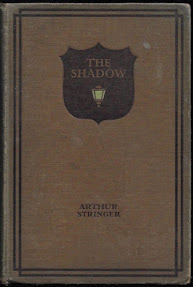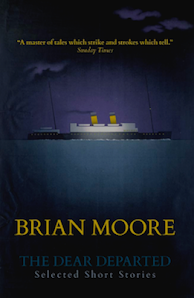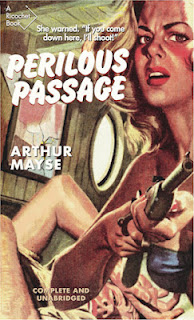 |
| Saturday Evening Post, 11 May 1946 |
My third post on Arthur Mayse in under two weeks.
Why not?
Shining a light on neglected writers like Mayse is the very
raison d'être of
The Dusty Bookcase. And make no mistake, Mayse is neglected.
Perilous Passage, the 1949 thriller that got me reading his work, was last published in 1950. His second novel,
Desperate Search (1952), which was adapted by Hollywood, has been out of print for nearly as long. There's never been a collection of the dozens of stories Mayse published in Canadian, American, and British magazines. There's no collection of his newspaper work. His name doesn't feature in
The Canadian Encyclopedia or
The Oxford Companion to Canadian Literature.
 |
| Argosy, November 1961 |
What intrigues me most are the scripts that Mayse wrote for
The Beachcombers.
Canadians and Germans will understand.
IMDb lists just one: "The Hexman."
BC BookWorld puts their number at four, but provides no titles. A call-out on the Friends of
The Beachcombers Facebook page brought unexpected riches, including an email from actor Jackson Davies (Constable John Constable), who provided a complete list with episode descriptions drawn from the CBC database.
As it turns out, Mayse wrote not one, not four, but twenty-seven episodes – many with his wife Win. The description of the earliest, "Here Comes Santa Claus" (broadcast 22 December 1974), promises light fare, as befits a Christmas episode:
The Brotherhood of Unaffiliated Beachcombers
sponsors the annual Christmas cruise which will
carry Santa (Nick) and his sleigh to the kids
on the outlying islands. Events get out of hand
when an accident puts Relic in the Santa suit.
Cast: Bruno Gerussi, Robert Clothier, Rae
Brown, Juliet Randall and Bob Park. Guest cast:
Franz Russell, Anna May McKellar, Gregg Morley,
Annabel Kershaw, Jack Rigg, and Drew Kemp.
Arthur Mayse's second script, "Nick and the Amazons" (12 January 1975), in which Nick is kidnapped by private school girls, seems more unconventional. In "Too Many Cooks" (6 April 1975), his third, "Molly goes on a trip to Vancouver and winds up on skid row."
Jackson Davies himself appears in nine episodes penned by Mayse (or the Mayses), beginning with "In the Still of the Night" (21 December 1975). As the actor noted in his email to me, the writer often wrote stories focussed on the show's indigenous characters. "Voice of the People" (4 January 1981), Mayse's second to last
Beachcombers episode, one of several to star Chief Dan George, is a good example:
Relic discovers that Nick and Jesse have
stumbled upon some native artifacts. While
poking around the site, Relic falls through the
roof of an abandoned long-house and becomes
entombed underground. He is finally rescued
when Chief Moses orders Nick and Jesse to go
back and cover up their find. Guest cast
includes Chief Dan George, Len George, Robert
George, John Callihoo, Willard Sam. Regular
cast members are Bruno Gerussi, Robert
Clothier, Rae Brown, Juliet Randall, Bob Park,
Pat John, Charlene Aleck, Reg Romero and
Jackson Davies.
I find I remember that episode quite well, though I'm certain I haven't seen it since it originally aired.
 |
| Chief Moses Charlie (Chief Dan George) and Jesse Jim (Pat John) |
Looking over the synopses of Mayse's episodes I find some familiar, and others not so, though I'm sure I watched them all. Among the latter is "Boat in a Bottle," an episode that aired two parts:
Hugh and the family befriend a young
Japanese-Canadian who has come to Gibsons to
locate his father's old fish-boat which was
confiscated during World War II.
They run head-on into entrenched prejudice from Col.
Spranklin but this does not discourage them
from wanting to find the fish-boat and making
it sea-worthy again. Cast: Bruno Gerussi,
Robert Clothier, Rae Brown, Juliet Randall and
Bob Park. Guest cast: Frank Wade, Paul Kariya,
Jonathon Pallone, and Dick Clements.
"Boat in a Bottle" was broadcast on 30 January and 7 March 1976, predating Ken Adachi's influential
The Enemy That Never Was: A History of Japanese-Canadians by several months... and predating reparations to Japanese-Canadians by well over a decade. It served as my introduction to an ugly scar on our history. We did not learn about internment camps in school.
The Beachcombers could be light fare, as with "Here Comes Santa Claus," but didn't shy away from the ugly. It reflected the country – particularly that part of the country – in a way other shows did not. I expect this is one reason why it remains so loved to this day. There is no Friends of the
Trouble With Tracy Facebook page.
Amongst those who responded to my query regarding Arthur Mayse's contributions was Jo-Anne Campone, whose late husband, Merv Campone, also wrote for the show. After our brief exchange, I discovered that he also wrote
Adventures on the Sunshine Coast (Toronto: NC Press, 1981), which I believe to be the only
Beachcombers book.
I found a Fine hardcover copy listed for sale online.
You can bet I bought it.
My thanks to Jackson Davies for his generosity.
Related posts:























































